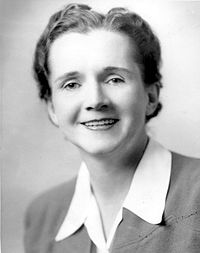
Cast photo from a recent production of "Making Lies from Truth" (Nong zhen cheng jia) by Yang Jiang; from this page
Dooling, Amy. Women's Literary Feminism in Twentieth-Century China. New York: Palgrave Macmillan, 2005.
After reading the long introduction to this book, I'm troubled once again by "feminist literary theory." Let me try to state the idea behind this big term very simply: literature ought to represent females in such a way as to highlight the need for feminist consciousness and feminist transformation. The resulting "feminist narrative" will either portray traditional patriarchal society negatively, which highlights the need for change, or it will portray female subjects who contribute substantially to the change, either simply because they understand the problems women face or because they come up with ways to actually change society.I'm almost on board with this feminist project, though I'm troubled by the following: there is a strong 'ought' to feminist narrative, a kind of demand as to what needs to happen in literature. There seems to be some conflict between the demand for feminist narrative and the analysis of "agency" in women's literature. Feminists both look for agency and try to push what they know of agency onto the text, which I think is why they tend to undervalue the simple application of traditions and conventions in their literature. And since the literary quality of a text is partly reflected in its dense network of interactions with writing tradition, literary quality, too, is undervalued.
In my own terms, feminist literary criticism doesn't, at least here in Dooling, express any overlap between "agency" and "affect." Companionate marriage, for example, is a kind of primary affective connection that allows for agency in both parties -- that's what "companion" means, right? And this kind of relationship can arise in Chinese writing as a reinvention (Dooling's word would be "rewrite") of conventions, including Confucian convention. The difference I seem to have is perhaps slight: I say a 'rewrite' can have less parody and critique than feminists normally look for, at least until they begin considering middlebrow literature perhaps, which field forces them to consider how literature works on readers who won't accept challenges that raise their levels of anxiety and ambivalence. People want happy endings.
More on this in my dissertation to come.
Read more...
















